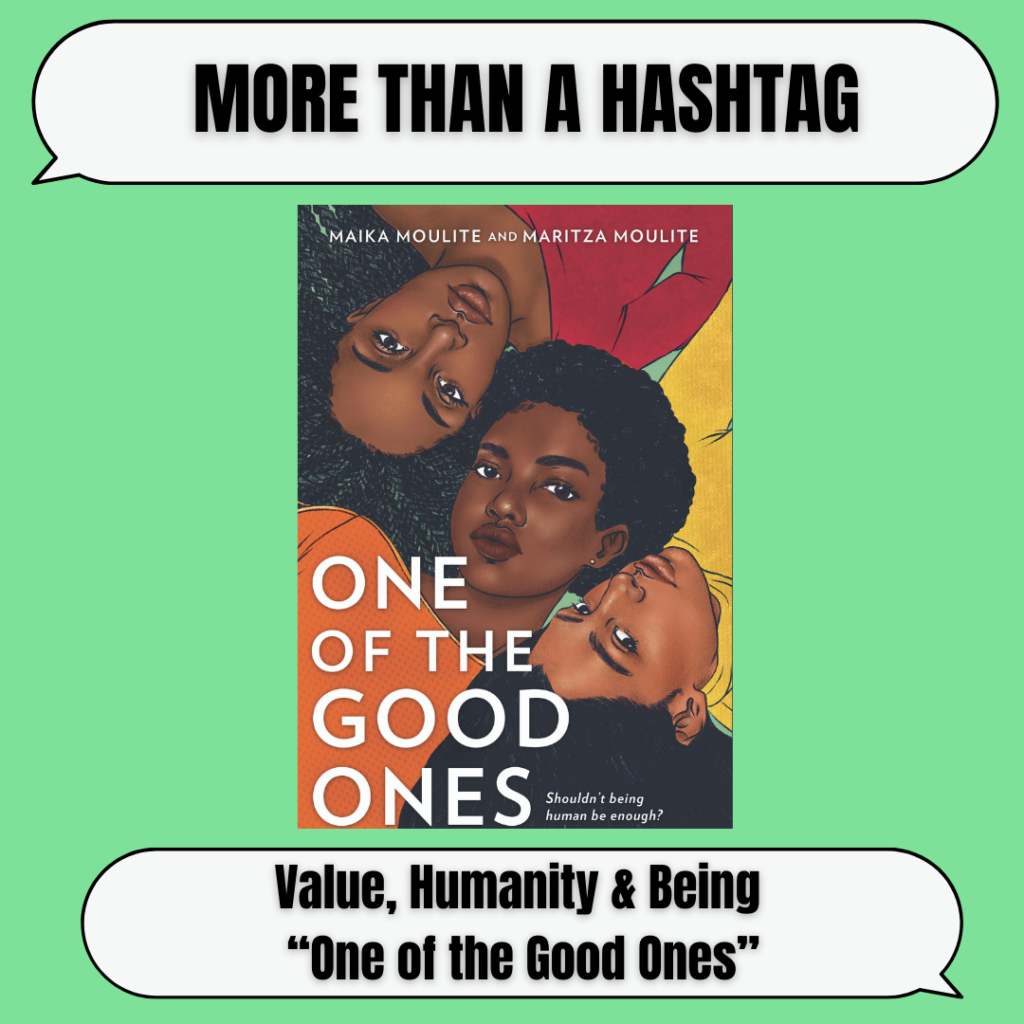
I expected One of the Good Ones to explore the dynamics between sisters, and while that is still prevalent, this novel contains so much more. It touches on themes of generational trauma, social justice, misogynoir, racism, sexuality, religion, and how these things affect one another. Moreso, these themes are shown to seep into our foster care system, criminal justice system, and the general way people maneuver themselves through the world. Authors Maika and Maritza Moulite are masters at weaving the past and the present, alternating points of view and timelines as readers are transported back multiple generations into the lived experiences of the Smith girls’ relatives.
As One of the Good Ones opens, Happi and Genny Smith have just lost their sister Kezi under mysterious circumstances, the sister they yearned to know and now can never fully connect with again. Kezi was a girl heavily involved in social activism and was killed at a rally protesting the very thing she fell victim to. In the months after her passing, Kezi’s loved ones are under a microscope, unable to properly grieve or process that their sister, friend, daughter, girlfriend is gone. Amidst her own grief, Happi reflects on her own life and if she’d be considered “one of the good ones” like Kezi. She wonders why there’s a belief that only certain people are deserving of mourning. In the hopes of reconnecting and honoring their sister, Happi and Genny go on a journey using their sister’s itinerary and an heirloom copy of The Negro Motorist Green Book as their guide. But just when they thought life couldn’t throw anything else at them, they discover a twist to Kezi’s story that changes everything once again.
I was consumed by this book entirely. Police brutality is one of the biggest issues that has plagued our society and continues to affect and damage the Black community, who are three times more likely to be killed by police. And the worst part of all the bloodshed and violence is that there is no accountability. According to Mapping Police Violence, “98.3 percent of killings by police from 2013-2020 have not resulted in officers being charged with a crime.” One of the Good Ones reminds us that these are not just numbers, but people who had lives and experiences beyond the trauma of their violent interactions with the police. With the growth of online activism and the ability for regular citizens to record what really happens with police, there continues to be public outcry across the United States. However, as we’ve seen with people like Breonna Taylor—whose family is still without justice as her face is put on candles, t-shirts, murals, and across the internet—there is a desensitization to the life we are supposed to be commemorating, so much so that her name became more of a tool of performative activism than an actual person.
As the title suggests, one of the central themes of this novel explores the idea of treating people as “one of the good ones,” which begs the question of whether someone is defined by their actions, whether their murder by police is warranted, and if they “deserve” to be mourned. As we see time and again, when a Black person is killed, their entire history is often splayed across the internet and news outlets, showcasing how that person supposedly did not fit the confines of being “good.” Despite being innocent, a child, cooperative, or whatever, the public claims that they are “not deserving of grief” and were “a threat.” This belief system—of deciding who should or should not be mourned, and how—is monstrous. Even if that person was flawed, as all human beings are, why does their death mean any less?
One of the Good Ones is perhaps one of the saddest books I’ve ever read. I cried uncontrollably at each turning point when the narrator of a certain chapter would describe the final moments of their life. The novel is threaded with grief, pride, love, secrets, and dread that make the events incredibly haunting. There is resentment, desperation, tension, deep sadness, and happiness, and I can say that the Moulites’ writing had me feeling all of it. I loved this cast of characters and so desperately felt for their individual struggles. Each of them deserved so much better. Black girls deserve so much better!
Early in the book the Moulite sisters write that Kezi “was more than her future. She had a past. She was living her present.” Regarding all the people whose lives were stolen from them, it is unimportant how they are/were perceived by police, media, and so on. What is imperative is that people know that the police have no right to enact violence or take a life. We must yearn for the day when police brutality is not a thing children grow up fearing, when it is a thing of the past. The Moulite sisters, and other authors like them, are teaching readers that we cannot stand for a corrupt system and the abuse of power. If you ever worry about standing up for yourself or others, as the authors write, “feel the fear and do it anyway.”
Noting that this is the first day of Black History Month, I challenge readers to not only commemorate the prominent Black historical figures, and the precious lives lost, but to celebrate the people living alongside us as well. It is important that we value Black lives each and every day, not just for 28 days of a given month.
ALL BLACK LIVES MATTER.
Content Warnings for One of the Good Ones: Death/murder, drugging, homophobia, lynching, police brutality, racism, kidnapping/abduction, stalking
PRR Writer, Jackie Balbastro